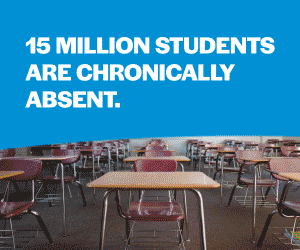 Evgenia Parajanian / Shutterstock.com
Evgenia Parajanian / Shutterstock.com
Schools that take steps to enroll more students of color in selective programs or to hire a more racially diverse teaching force could face civil rights investigations under the Trump administration — even if they’re using criteria other than race to achieve those goals.
In a Dear Colleague letter intended for school leaders, the U.S. Department of Education’s top acting civil rights official said Friday that discriminatory practices had proliferated in American schools “under the banner of ‘diversity, equity, and inclusion.’”
“But under any banner, discrimination on the basis of race, color, or national origin is, has been, and will continue to be illegal,” wrote Craig Trainor, acting assistant secretary for civil rights in the Education Department.
The letter cites the 2023 Supreme Court decision in Students for Fair Admissions v. Harvard, which found that universities cannot use race as a factor in college admissions. Since that decision, conservative groups have tested its implications for scholarships for prospective teachers of color, programs that provide extra support to students of color, and admissions policies that aim to diversify magnet schools.
But the Supreme Court has not yet revisited the question in one of these other contexts. By not taking up the case, the court even allowed a change in admissions policies at an elite Virginia high school that de-emphasized test scores to remain in place. Asian American parents had alleged the district discriminated against their children in its pursuit of a more diverse student body.
Legal experts said the Dear Colleague letter misstates the law in the aftermath of the Students for Fair Admissions case and represents an “enormous leap” in telling school districts and universities they can’t use non-racial criteria in pursuit of diversity goals.
The admissions case does create a higher bar for taking race into consideration, said Derek Black, a University of South Carolina law professor. Schools may need to rethink programs that appear to benefit one group to the exclusion of others, as Los Angeles Unified School District did when it overhauled its Black student success program in response to a legal challenge.
But for nearly two decades school districts have believed they are in a legal “safe harbor” when they use non-racial criteria such as household income and ZIP code to diversify their schools, Black said.
“This letter is saying, ‘You don’t even have safe harbor anymore,’” he said. “That’s a mind-blowing, incorrect statement of the law.”
Cara McClellan, an associate practice professor of law at the University of Pennsylvania, expects a widespread “chilling effect” from the letter even though it doesn’t accurately describe the law. Its description of a colorblind society flies in the face of history and data about persistent inequalities, she said.
“I think the letter is just as much intended to impact the public narrative about whether or not attempts to address inequity are fair or not and to redefine what discrimination is,” she said.
The letter says the Education Department’s Office for Civil Rights will “vigorously enforce” the law in preschools, K-12 schools, and higher education settings. And while the letter’s interpretation could be challenged in court, repeated civil rights investigations of this kind could discourage schools from pursuing or continuing diversity programs that have long been considered legal.



























